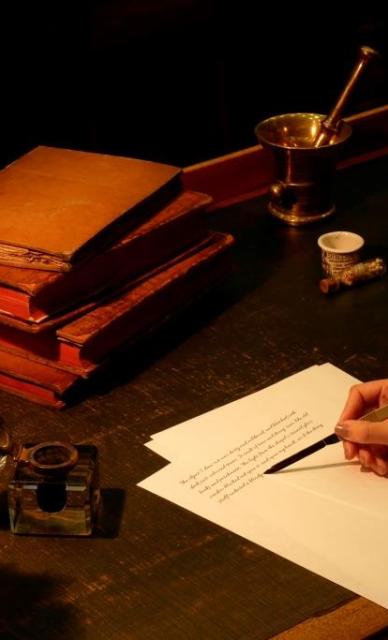Physicians' Gallery Newsletter
Updates on upcoming events, exhibitions and online stories
(6 September 1714 – 15 April 1766)
President

Whytt was elected fellow of the Royal Society on 1 April 1752.
He was president of the Royal College of Physicians of Edinburgh from 1763 to 1766.
Robert Whytt was born in Edinburgh on 6 September 1714. He is most likely the Robert Whyt that matriculated at Edinburgh University in 1729. Whytt was certainly studying medicine at Edinburgh the following year under Alexander Monro primus. In 1734, Whytt went to London and then Paris to continue his medical studies. Whytt then travelled to Leiden where he studied under Boerhaave. He obtained his MD at Rheims on 2 April 1736. On 31 October 1737, Whytt obtained an MD from St Andrews. He became a licentiate of the Royal College of Physicians of Edinburgh in 1738 and was elected fellow that same year. Whytt established a private practice in Edinburgh. Whytt was married twice, his first marriage resulting in no surviving children. His second marriage was to Louisa Balfour and the couple had fourteen children, although only six survived.
Whytt’s contemporary reputation was based on his use of lime water and soap for cases of stones in the bladder. His paper on the topic went through several editions and soap dissolved in lime water remained a popular cure through the nineteenth century. By 1739, Whytt began to question the accepted views on the nature of vital motions, shifting his focus to neurophysiology. Whytt’s theories on the central nervous system opposed contemporary teachings and drew him further into the public eye. Whytt outlined his ideas in a paper read before the Philosophical Society in Edinburgh in 1745. In 1747, he was appointed professor of the practice of medicine at Edinburgh University. Whytt was also appointed professor of the institutes of medicine. He also gave clinical lectures at the Royal Infirmary in 1760.
In 1751, Whytt published a major work, Essay on the Vital and other Involuntary Motions of Animals. This book attracted the attention of physiologists all over Europe. Whytt’s work led to a major publication on nervous diseases in 1764. It has been suggested that this work was influential in phasing ‘the vapours’ out of vogue and replacing that terminology with ‘nervous diseases.’
Whytt was appointed first physician to King George III in Scotland, a post made specifically for him. In his lifetime, Whytt was associated with the Scottish Enlightenment and had connections with the European continent and colonial American medicine. Whytt died in Edinburgh on 15 April 1766. His collected works were published by his son in 1768.

Physicians' Gallery Newsletter
Updates on upcoming events, exhibitions and online stories